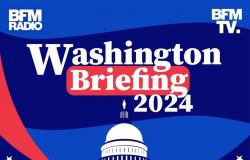
If the “Hubble tension” is currently at the heart of the debates between certain astrophysicists, it is not because its French Wikipedia page is ridiculously short, but because it happens to be a key element in the understanding of the expansion of the universe. Let's start from the beginning: at the origin, there is the Hubble constant, a coefficient of proportionality relating the distance and the speed of apparent recession of the galaxies of the observable universe. This number makes it possible in particular to determine the current expansion rate of the universe.
The tension actually lies in the measurement difference between the direct method (which consists of directly measuring distances) and that which uses the cosmic microwave background to measure the escape speed of extragalactic objects. This difference is around 8%, which, on the scale of our universe, is not nothing – hence a lot of arguments between scientists.
Subscribe for free to the korii newsletter!Don't miss any korii articles thanks to this daily selection, directly in your inbox.
The Big Bang called into question
An article published on January 15 in The Astrophysical Journal Letters puts a piece back in the machine, since it indicates that in all likelihood, the universe is currently expanding faster than current physical models could imagine. Associate professor of physics at Duke University (North Carolina) and lead author of the study, Dan Scolnic sums it up: “The tension is now turning into a crisis”he explains to The Debrief to describe the way in which the world of physics is suddenly called upon to re-examine its certainties.
It must be said that questioning the calculation of the Hubble constant involves important questions surrounding the very notion of the Big Bang. It was the inventor of the term, the astronomer Fred Hoyle, who was one of the first to emerge as a detractor of this theory – after all, it is probably only imbeciles who do not don't change your mind. “Our model of cosmology could be broken”comments Dan Scolnic, who also affirms that our old models would seriously benefit from being dusted off.
-To address this long-standing controversy, Dan Scolnic and his team used a “cosmic scale” based on data collected with the help of the Dark Energy Spectroscopic Instrument (DESI). From its location in the Kitt Peak Observatory (Arizona), it currently observes more than 100,000 galaxies. This made it possible to more precisely assess the distances between Earth and Coma, the name given to one of the closest galactic clusters to our planet.
“I knew this would give us one of the most precise measurements of the Hubble constant that we could get”says Dan Scolnic, who says that once he got the DESI results, he “dropped everything to work on it tirelessly”. A Hubble constant calculated more precisely is the assurance of being able to update our knowledge on the expansion of the universe – and therefore of definitively sending away some models that have had their day.
Besides, it's not over: “We expect future programs to refine the distance to Coma and closer clusters to help illuminate this new local window on the Hubble voltage”add the scientists who worked using DESI.





